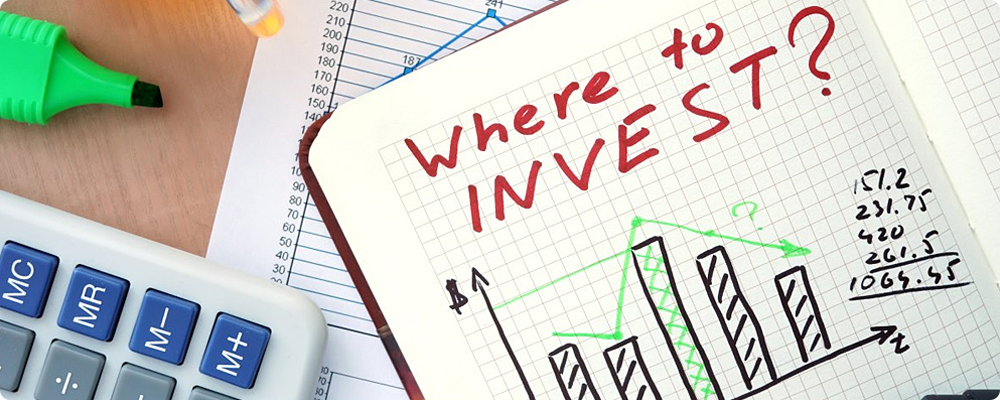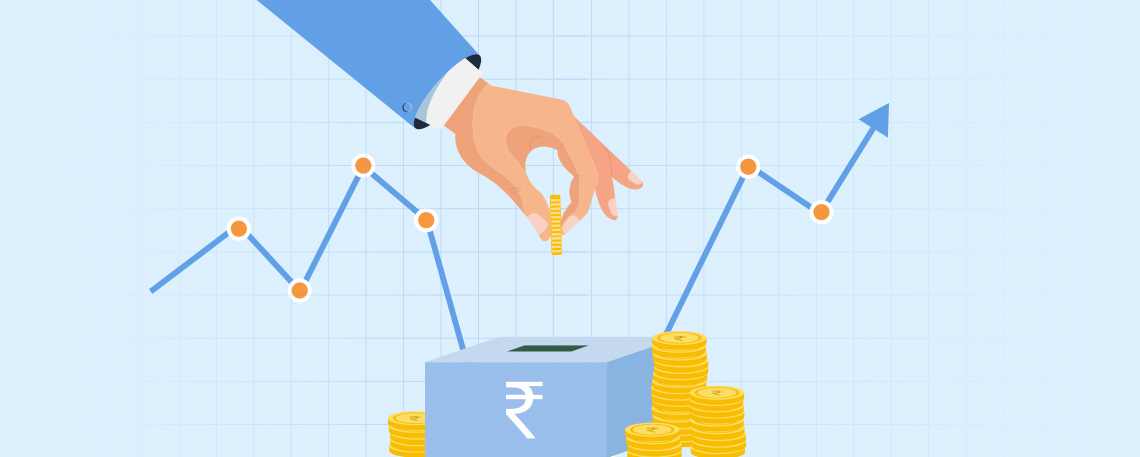Is Money Lying Idle In Your Bank Account A Good Option?
December 20, 2016
|
We’re sure that you might have received enough mails and messages on how demonetization should change the way you think, how should it change the way you now look at stock prices, and many more such practicalities. Still, from the past 45 odd days, we’ve been continuously been receiving lots and lots of queries from all our subscribers, with regards to what should their stance be on the idle funds that they have lying in their bank accounts.
Also, with everyone showing their discontent over the restrictions on withdrawal limits, a smart and an informed investor should have totally different concerns. What should bother him/her is whether he/she is making the most of that ‘as-of-now’ physically inaccessible money!?
Consider this: your money which is parked in the bank account fetches you approximately 4% per annum (sometimes 6% too, but usually not more than that). The question is, is that 4% enough? Remember, the minute you settle for something less than what you deserve, you get even lesser than you had settled for. Time and again, we have always proved that investing in equities has always given positive returns if done over a long term horizon (note that we are totally against intraday trading, as it gives you nothing but losses, both, in the short term and even more in the long term).
Allow us give you the simplest of examples and make it clear. Say you have a savings account in HDFC Bank Ltd. or ICICI Bank Ltd. or even State Bank of India Ltd. for that matter. If you had kept your money in the HFDC Bank savings account, you would have earned a maximum compounded interest of 22% (5 years) on your initial investment i.e. a deposit of Rs. 1 lakh in your savings account on 1st January 2012, would not have earned you more than Rs. 0.22 lakh as of today, whereas if you had utilized that same amount in purchasing the shares of the HDFC Bank Ltd. itself, your corpus would have been worth Rs. 2.68 lakhs as of date. Shocking?? It shouldn’t be so. Take another example, say State Bank of India Ltd. Rather than keeping your money in the savings account of State Bank of India Ltd., if you had purchased the shares of the bank itself, you would have ended up with a corpus of Rs. 1.61 lakhs.
The theory is actually quite simple
- You deposit the money in the bank
- The bank uses that money further credit and lending purposes
- That lending eventually earns profits for the bank
- That profit is shown in the quarterly earnings
- That quarterly report appreciates the share price of the bank
- And eventually, it is the shareholders that take home the creamy 50%-150%, and you have settled for a mediocre 22%
Isn’t that ironic?
If this has helped you change your perception towards investing in equities v/s depositing in savings account, the next thing that should, and will definitely cross your mind, is “HOW DO I INVEST IN SUCH A VOLATILE MARKET?”. Just to get you started, remember what Bill Ackman always says: “Volatility is the friend of the unleveraged long-term investor. We much prefer the bumpy road to higher rates of return than a smoother rise to more modest profits.”
With demonetization taking a toll on the supply-demand chains of a lot of sectors, the earnings of many, in fact most companies are set to take a hit in the next couple of quarters. And this has already been discounted by the market. So your job now becomes actually quite straightforward. Just search for a company with a sound business model and a hardworking management, which will most probably be available at relatively cheaper valuations and you are good to go!!! But this task, which actually sounds easy, haunts many. The fear of not knowing where and how to invest is the reason why many people opt out of this option altogether. But the golden question is, whether a savings account option is actually worth it or is it better to invest that surplus corpus directly into market?
All you need to do is make some right selections and no one can stop you from making profits. Even if you happen to make some “reasonably bad” choices, the market always takes you on the greener side if you are just patient enough. From the perspective of this article, sure, your savings account would definitely provide you with that modest and safe 4% per annum, but why settle for something so mediocre when the market is providing you with opportunities, which in the past have always given stupendous returns to those who had the audacity to grab them.
Additionally, here is the response of India’s legendary investor, Rakesh Jhunjhunwala, when asked about what advice he would like to give to non-professional investors:
“There are two to three reasons why one should invest in the markets. The one advice I offer to young couples is that they must invest all their savings in a house. After a house, devote 80% of your savings to the market. Here’s why: India is in a growth phase - the index has gone up from 100 to 28,000 over the past 30 years. I don’t see why this situation will not repeat itself over the next decade. This being a stock market, valuations have to grow. If India grows, earnings have to grow. India saves over $650 Billion a year. In four to five years, this figure will go up to a trillion dollars. Even if 10% of that money flows into the equity markets, that adds up to about a $100 Billion. Why will this money not come to the equity markets? In 1991, 18% of savings flowed into equities and by 2007, this figure stood at 13%. So, there is going to be an upsurge in earnings and money flowing into the market.
If India achieves GDP growth of 12-14%, corporate profit growth will be 18-20%. At some stage, valuations will expand. Which other nation can provide this kind of growth? The most important question is if debt can give me a return of 7% post-tax or if equity can give me a return of 18% post-tax, which other asset class can give me that kind of return? Guys like me are 101% invested in equity.”
Hence, the key take-away from this piece being, if you select the right companies in a beaten down market like the current one, where quality businesses are available at a bargain, you can make some big money in the time to come, when the market realizes the true value of these not-so-popular but fundamentally sound companies. We at StockAxis, have always advised not only our clients, but all our subscribers against short term trading and have recommended a complete fundamental research before every possible investment. Also, with all businesses trading at cut-price valuations, one can also select the companies from a more goal-oriented perspective, like established Blue-Chip companies for a lesser-risk averse and steady growth of wealth, hidden gems from the smallcap and midcap lot, which have the potential to become Multibaggers, with relatively more risk than the blue-chip companies, but with a multifold reward opportunity too.
So, what are you waiting for? Make sure you make the most of this market opportunity, for you may never know when the market will reverse its trend and get over this demonetization episode! All we want is for you to make the most of whatever lies ahead!












